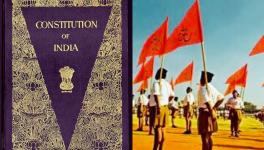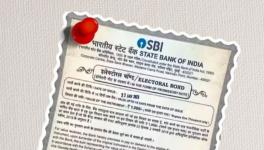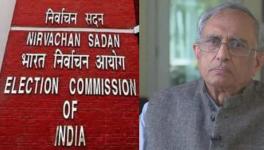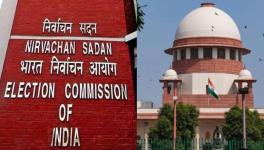Political Parties Receive Over Rs 871 Crore For Upcoming Assembly Elections In 5 States Through Electoral Bonds

Over Rs 871 crore has been placed at the disposal of political parties through Electoral Bonds just before the Assembly elections in five Indian states – Rajasthan, Madhya Pradesh, Chhattisgarh, Telangana and Mizoram. Over Rs 400 crore was collected in October itself. There is no record of the amount collected by these parties by any other means.
A report in The Hindu, based on the information supplied by the State Bank of India (SBI) under RTI query, Electoral Bonds worth Rs 401.73 crore were sold by SBI in the October 1-10 window, most of these Bonds being in denominations of Rs 1 crore and above. This was the fifth tranche. The highest number of Bonds, about 37.5 per cent (worth Rs 150.7 crore) were sold in Mumbai. The second highest sale was in Kolkata (Rs 62.6 crore worth). Earlier, the SBI had sold Bonds worth Rs 222 crore in March, Rs 114.9 crore in April, Rs 101 crore in May, and Rs 32 crore in July.
Only the SBI is authorised to sell the Bonds, through its designated 53 branches across the country. The Bonds are in the denominations of Rs 1000, Rs 10,000, Rs one lakh, Rs ten lakh and Rs one crore. An individual or an organisation/body can purchase these Bonds from a designated SBI branch after fulfilling the KYC (Know Your Customer) requirements. The name of the purchaser will not be displayed on the Bond.
The buyer can donate these Bonds to a political party which is registered with the Election Commission and has received not less than one per cent of the votes in the last Lok Sabha or Assembly election. The party can encash the Bonds only by depositing these in its bank, registered with the Election Commission within 15 days of the issuance of the Bond. If not deposited within 15 days, the amount of the Bond will be credited to the Prime Minister’s Relief Fund. The scheme was included in the 2017-2018 budget proposals.
This Electoral Bond scheme was described as a “retrograde step” by O P Rawat in August last year — before his elevation as the Chief Election Commissioner. In his keynote address at a conference of Association for Democratic Reforms (ADR), Rawat had observed that the “recent amendments in the election and income tax laws make it clear that any donation received by a political party through an Electoral Bond has been taken out of the ambit of reporting in the Contribution Report which political parties have to submit to the Election Commission (EC).”
He had added: “Implication of this step can be retrograde as far as transparency is concerned. Furthermore, where contributions received through Electoral Bonds are not reported, a perusal of Contribution Reports will not make it clear whether the party in question has taken any donation in violation of Section 298 of the Representation of the People Act, which prohibits political parties from taking donations from Government companies and foreign sources.”
Besides, the Election Commission had earlier expressed its apprehension over the abolition of relevant provisions of the Companies Act of removing a cap of 7.5 per cent of profit for political donations can lead to money laundering by setting up of shell companies for diverting funds for donations to political parties.
Get the latest reports & analysis with people's perspective on Protests, movements & deep analytical videos, discussions of the current affairs in your Telegram app. Subscribe to NewsClick's Telegram channel & get Real-Time updates on stories, as they get published on our website.
























